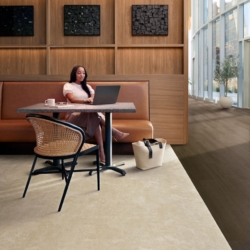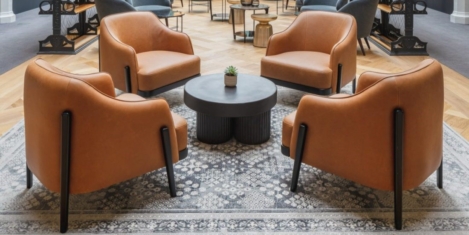June 21, 2024
Latest carpet tile and LVT collections from Interface explore crafted textiles and natural forms
 Interface, Inc. the global flooring solutions company and leader in sustainability, has unveiled its latest global carpet tile and luxury vinyl tile (LVT) collections. The Etched & Threaded™ carpet tile and Earthen Forms™ LVT collections push the boundaries of design while continuing the company’s commitment to creating flooring solutions made for purpose and without compromise. The products offer innovative, modular tiles that fit together effortlessly and combine eye-catching textures, natural patterns, and neutral tones that can be mixed and matched, offering more ways to create high-performing, beautiful spaces. (more…)
Interface, Inc. the global flooring solutions company and leader in sustainability, has unveiled its latest global carpet tile and luxury vinyl tile (LVT) collections. The Etched & Threaded™ carpet tile and Earthen Forms™ LVT collections push the boundaries of design while continuing the company’s commitment to creating flooring solutions made for purpose and without compromise. The products offer innovative, modular tiles that fit together effortlessly and combine eye-catching textures, natural patterns, and neutral tones that can be mixed and matched, offering more ways to create high-performing, beautiful spaces. (more…)



































June 12, 2024
We only have to look at the natural world to boost our mental health
by Whitney Fleming • Comment, Wellbeing